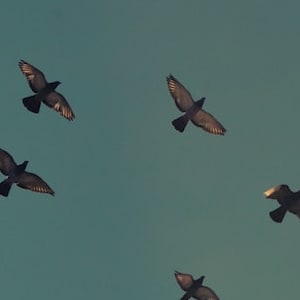feather one’s nest: Idiom Meaning and Origin
What does ‘feather one's nest’ mean?
The idiom "feather one's nest" means to accumulate wealth or resources for one's personal benefit, often through cunning or unethical means. It suggests the act of building a comfortable and secure home for oneself by adding more and more feathers to a nest, symbolizing wealth and comfort.

Idiom Explorer
The idiom "wet one's beak" means to receive a share of profits or benefits, especially in a dishonest or unethical manner.
The idiom "lay eggs" means to produce or create something, often used to describe the act of generating new ideas, inventions, or solutions.
The idiom "knock someone down with a feather" means to greatly surprise or shock someone. The use of the feather emphasizes how unexpected or unbelievable the news or event is.
The idiom "kill the goose that lays the golden eggs" means to destroy a valuable source of income or opportunity by being greedy or short-sighted.
The idiom "keep the wolf from the door" means to have enough money or resources to provide for one's basic needs and avoid poverty or hunger.
The idiom "in the money" means to be in a financially successful or prosperous situation.
The idiom "honey hole" refers to a place or situation that is rich in resources, opportunities, or abundance, often used in the context of fishing or hunting. It suggests a highly favorable and advantageous location or circumstance.
The idiom "hide one's light under a bushel" means to conceal or downplay one's talents, abilities, or achievements.
The idiom "have one's ducks in a row" means to be well-prepared and organized, with everything in its proper place or order.
The idiom "hang one's hat" means to settle down or establish oneself in a particular place or situation.
Curious Origins
The idiom "feather one's nest" is a well-known phrase in English that refers to someone enriching themselves or profiting from a situation, often in a secretive or self-serving manner. The phrase originates from the image of a bird lining its nest with soft feathers to create a comfortable and secure environment for its offspring.
One of the earliest documented uses of the phrase can be found in Jonathan Swift's Journal to Stella in 1712. He used the idiom metaphorically to describe a politician who accumulates wealth or advantages for themselves through their position of power. This shows how "feather one's nest" was already being used to criticize individuals who benefited from their authority without considering others.
The metaphorical use of "feather one's nest" became more widespread in the 19th century and was often employed to condemn those who used their authority or influence to benefit themselves at the expense of others. This negative connotation still persists today when using the idiom.
While the exact origins of the idiom are unclear, it is believed to have been inspired by birds' behavior, particularly how they carefully arrange feathers in their nests for their offspring's well-being. This behavior reflects their instinctive drive to prioritize their young, making the metaphor of "feathering one's nest" a fitting representation of the pursuit of personal gain at others' expense.
Over time, "feather one's nest" has expanded to encompass a wide range of actions, not limited to illegal or unethical behavior. It can also refer to more subtle acts of self-enrichment, such as taking advantage of opportunities within the boundaries of the law but still showing a lack of concern for others.
The idiom's enduring popularity can be attributed to its vivid imagery and how relatable it is. The idea of someone feathering their nest taps into a universal desire for security and comfort, making it a powerful symbol for the conflict between individual ambition and the well-being of others.
The idiom "feather in one's cap" is related to "feather one's nest" and refers to someone achieving a notable accomplishment or success that adds to their reputation or personal achievements. While "feather one's nest" emphasizes the pursuit of personal gain, "feather in one's cap" emphasizes the recognition or pride that comes from achieving something significant.
The idiom "earn one's keep" is another related phrase that emphasizes the idea of earning or deserving one's livelihood through hard work or contributions. In the context of "feather one's nest," "earn one's keep" could be seen as the opposite. It suggests that individuals who enrich themselves should also be expected to contribute or deserve the benefits they receive.
The idiom "fine feathers make fine birds" is yet another related phrase that highlights the importance of appearance in forming judgments. While "feather one's nest" focuses on the selfish pursuit of personal gain, "fine feathers make fine birds" emphasizes how external appearances can influence how others perceive and judge someone.
The idiom "feather one's nest" represents the pursuit of personal gain at the expense of others. Its origins can be traced back to the behavior of birds building nests, and it has been used for centuries to critique those who prioritize their own well-being over the common good. The continued usage of this idiom reflects both the timeless desire for security and the moral conflicts inherent in such pursuits.
Example usage
Examples of how the idiom feather one's nest can be used in a sentence:
- She used her position of power to feather her nest with generous bonuses and kickbacks.
- After years of hard work and saving, he was finally able to feather his nest by purchasing a luxury beach house.
- The corrupt politician was found guilty of taking bribes to feather his nest at the expense of public funds.
More "Money" idioms



